Factory Records impresario and Granada TV presenter Tony Wilson once said: “When forced to pick between truth and legend, print the legend.”
Books about the trials and tribulations of the music industry come in all shapes, sizes and angles. The approach can be tricky… should they be personal accounts, encyclopaedic histories, stories based on real life but with some spin, or just snapshots of an era?
In recent years, autobiographies and memoirs have become very popular as money for old rope in the absence of physical music sales. These can range from being informative and hilarious to extremely bitter, with others coming over very dull in an attempt not to upset anybody. Meanwhile others feature so many falsehoods that they may as well be placed in the ‘Fiction’ section.
One less appealing format that has been gaining increasing prevalence is the fan memory compendium; this could be seen as a lazy and cheaper way of producing a publication as followers compete to be seen as the biggest fan. Meanwhile others, notably members of lower league bands, try to make out they were massive fans in the first place with recollections that are actually veiled attempts to promote their own music.
When writing a music book, it helps to actually read and research a few beforehand. In addition, when deciding whether a point is worthy of inclusion, the viewpoint of the reader must always be taken into consideration as they hypothetically ponder “so what?”.
The 21st Century ubiquity of social media has proved that not everyone can string a coherent sentence together. But where that may seem a barrier, a ghost writer can be the subject’s best friend and a number of the books listed here have taken that route.
Not a best of list, here are 25 music books that have become the personal favourites of ELECTRICITYCLUB.CO.UK listed in yearly and then alphabetical order by title.
DEPECHE MODE: BLACK CELEBRATION Steve Malins (1999)
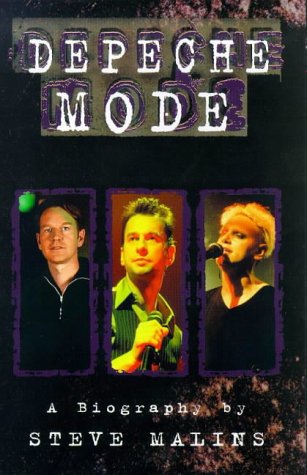 Steve Malins’ biography features interviews with Alan Wilder, Daniel Miller and Flood. Offering assessment on the unusual band dynamic, one story that highlights things were going south is the debauched cricket match between DEPECHE MODE and OMD during the 1988 US tour. The continually underappreciated Wilder declares how he proudly bowled out Andy McCluskey whom he intensely disliked. Meanwhile Dave Gahan hovered up a line of coke before going into bat and was inevitably out for a golden duck!
Steve Malins’ biography features interviews with Alan Wilder, Daniel Miller and Flood. Offering assessment on the unusual band dynamic, one story that highlights things were going south is the debauched cricket match between DEPECHE MODE and OMD during the 1988 US tour. The continually underappreciated Wilder declares how he proudly bowled out Andy McCluskey whom he intensely disliked. Meanwhile Dave Gahan hovered up a line of coke before going into bat and was inevitably out for a golden duck!
‘Black Celebration’ was originally published by Andre Deutsch Ltd with 2001, 2005 + 2013 updated editions
TAINTED LIFE Marc Almond (1999)
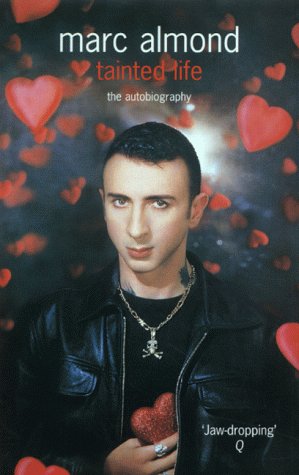 This is a frank but humorous autobiography by the SOFT CELL frontman about living life with art school aspirations but suddenly thrust into becoming a pop star and having false tabloid stories written about him in a homophobic world. Attempting to rebuild a career having signed to Warners in 1991, in a reality check, he is told by MD Rob Dickens that the world does not need another Marc Almond album and suggests recording a Trevor Horn produced cover of Jacques Brel’s ‘Jacky’ as made famous by Scott Walker…
This is a frank but humorous autobiography by the SOFT CELL frontman about living life with art school aspirations but suddenly thrust into becoming a pop star and having false tabloid stories written about him in a homophobic world. Attempting to rebuild a career having signed to Warners in 1991, in a reality check, he is told by MD Rob Dickens that the world does not need another Marc Almond album and suggests recording a Trevor Horn produced cover of Jacques Brel’s ‘Jacky’ as made famous by Scott Walker…
‘Tainted Life’ was originally published by Pan Books
I WAS A ROBOT Wolfgang Flür (2000)
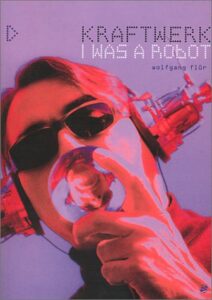 ‘I Was A Robot’ was the controversial autobiographical exposé of the KRAFTWERK machine combined with Wolfgang Flür’s partying exploits. However, as his account of OMD coming backstage to meet the band after the Liverpool Empire gig in 1975 has since proved to be false while his musical contribution to KRAFTWERK recordings has been shown to have been minimal, although entertaining, parts of this book should be taken with a pinch of salt.
‘I Was A Robot’ was the controversial autobiographical exposé of the KRAFTWERK machine combined with Wolfgang Flür’s partying exploits. However, as his account of OMD coming backstage to meet the band after the Liverpool Empire gig in 1975 has since proved to be false while his musical contribution to KRAFTWERK recordings has been shown to have been minimal, although entertaining, parts of this book should be taken with a pinch of salt.
‘I Was A Robot’ was originally published by Omnibus Press with 2003 + 2017 revised editions
https://www.facebook.com/WolfgangFlur1
THE ENCYCLOPAEDIA OF CLASSIC 80s POP Jonathan Blythe (2002)
Written in the irreverent vein of classic Neil Tennant-era Smash Hits, the best quote in this amusing book is about DURAN DURAN: “You will have surely have wondered why the girl you fancied seemed far more interested in a slightly porky bloke with bleached-blond hair and a foppish name. The compilation ‘Decade’ contains the 80s hits, but if you want a more comprehensive overview, go for the other one ‘Greatest’. You can usually find them both in the ‘CDs for £5.99’ section, to be honest”
‘The Encyclopaedia Of Classic 80s Pop’ was originally published by Allison & Busby
https://www.goodreads.com/en/book/show/1172733.The_Encyclopaedia_Of_Classic_80s_Pop
24 HOUR PARTY PEOPLE Tony Wilson (2002)
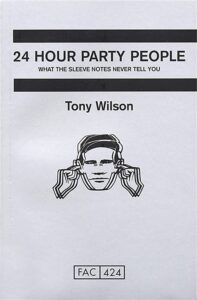 Given the Factory Records catalogue number FAC 424 and subtitled “What The Sleeve Notes Never Tell You”, this account of the Manchester independent label is centred around Wilson’s noted ego where the narrative reads as enjoyable spin rather than factual stories about the label, its bands and The Haçienda. His alleged legendary quote that ”The musicians own everything. The company owns nothing. All our bands have the freedom to f**k off” was to prove to be his downfall…
Given the Factory Records catalogue number FAC 424 and subtitled “What The Sleeve Notes Never Tell You”, this account of the Manchester independent label is centred around Wilson’s noted ego where the narrative reads as enjoyable spin rather than factual stories about the label, its bands and The Haçienda. His alleged legendary quote that ”The musicians own everything. The company owns nothing. All our bands have the freedom to f**k off” was to prove to be his downfall…
’24 Hour Party People’ was originally published by Macmillan
NEW ROMANTICS: THE LOOK Dave Rimmer (2003)
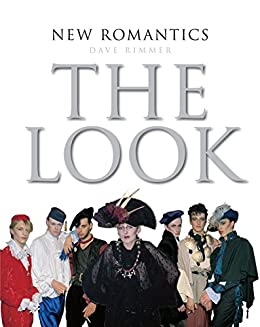 Smash Hits writer and author of ‘Like Punk Never Happened…’ Dave Rimmer takes a look at the flamboyant New Romantics via The Blitz Club playlists and profiles of SPANDAU BALLET, VISAGE, DURAN DURAN, SOFT CELL, DEPECHE MODE, KRAFTWERK and DAF. The Myth of Berlin and Futurism are also discussed and there are plenty of glossy photos that encapsulate its spirit.
Smash Hits writer and author of ‘Like Punk Never Happened…’ Dave Rimmer takes a look at the flamboyant New Romantics via The Blitz Club playlists and profiles of SPANDAU BALLET, VISAGE, DURAN DURAN, SOFT CELL, DEPECHE MODE, KRAFTWERK and DAF. The Myth of Berlin and Futurism are also discussed and there are plenty of glossy photos that encapsulate its spirit.
‘The Look’ was originally published by Omnibus Press
https://www.rocksbackpages.com/Library/Writer/dave-rimmer/
IF I WAS Midge Ure (2004)
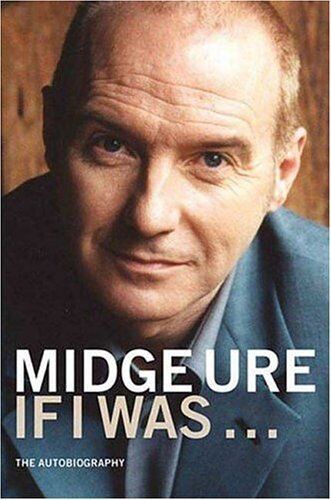 With dry humour, this is a sincere and honest account by Midge Ure of his career which included being a teen pop idol with SLIK who had their own Look-In magazine comic strip. As well as accounts of his success with ULTRAVOX and VISAGE and as a solo artist, there is also his darker descent into alcoholism in the wake of low sales. Our hero is candid about the occasionally tense dynamics with his colleagues, while an insight into VISAGE’s original contract with Polydor makes very interesting reading.
With dry humour, this is a sincere and honest account by Midge Ure of his career which included being a teen pop idol with SLIK who had their own Look-In magazine comic strip. As well as accounts of his success with ULTRAVOX and VISAGE and as a solo artist, there is also his darker descent into alcoholism in the wake of low sales. Our hero is candid about the occasionally tense dynamics with his colleagues, while an insight into VISAGE’s original contract with Polydor makes very interesting reading.
‘If I Was’ was originally published by Virgin Books with 2011 revised edition
PET SHOP BOYS, CATALOGUE Philip Hoare & Chris Heath (2006)
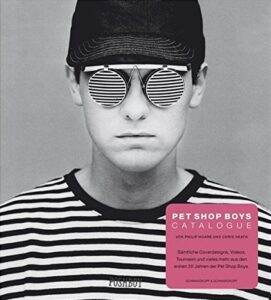 This is a superbly presented visual retrospective of PET SHOP BOYS up to ‘Battleship Potemkin’ featuring artwork, video stills, stage sets and other artefacts accompanied by insightful commentary. There is also a chronology included as well as an interview with Neil Tennant and Chris Lowe who again steals the show with the quip “We still are grumpy, actually”!
This is a superbly presented visual retrospective of PET SHOP BOYS up to ‘Battleship Potemkin’ featuring artwork, video stills, stage sets and other artefacts accompanied by insightful commentary. There is also a chronology included as well as an interview with Neil Tennant and Chris Lowe who again steals the show with the quip “We still are grumpy, actually”!
‘Catalogue’ was originally published by Thames and Hudson Ltd
https://www.petshopboys.co.uk/
BRIAN ENO: ON SOME FARAWAY BEACH David Sheppard (2008)
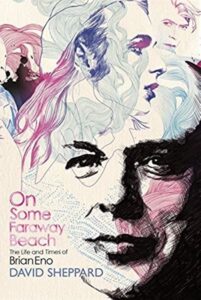 Credited with taking David Bowie into “a whole new school of pretension” with The Berlin Trilogy, this authorised biography on Brian Eno traces his career beginning as a self-confessed non-musician with ROXY MUSIC twisting knobs on a VCS3 to producing U2. In between, he makes synthesizers go bong, popularises ambient music, develops Oblique Strategies with artist Peter Schmidt and gets his head around programming the Yamaha DX7. But the biggest revelation in the book? “Eno was shagging more women than Ferry”!
Credited with taking David Bowie into “a whole new school of pretension” with The Berlin Trilogy, this authorised biography on Brian Eno traces his career beginning as a self-confessed non-musician with ROXY MUSIC twisting knobs on a VCS3 to producing U2. In between, he makes synthesizers go bong, popularises ambient music, develops Oblique Strategies with artist Peter Schmidt and gets his head around programming the Yamaha DX7. But the biggest revelation in the book? “Eno was shagging more women than Ferry”!
‘On Some Faraway Beach’ was originally published by Orion
SPARKS: No1 SONG IN HEAVEN Dave Thompson (2009)
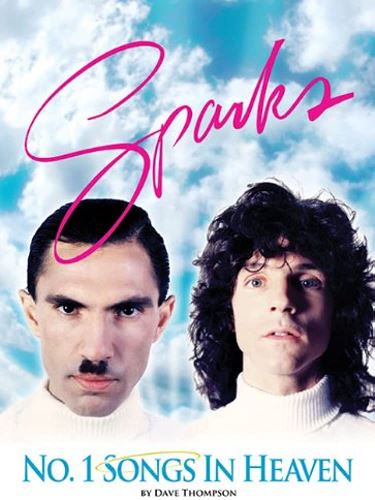 An enjoyable unauthorised biography of SPARKS, Ron and Russell Mael’s endearingly witty contributions to this book come from the author’s interviews with the brothers conducted between 1985-2009. There are also press cuttings, an expansive discography and a collector’s guide alongside quotes from former backing band members. But while the stories of the various albums are detailed, those wanting gossip on personal lives will be disappointed.
An enjoyable unauthorised biography of SPARKS, Ron and Russell Mael’s endearingly witty contributions to this book come from the author’s interviews with the brothers conducted between 1985-2009. There are also press cuttings, an expansive discography and a collector’s guide alongside quotes from former backing band members. But while the stories of the various albums are detailed, those wanting gossip on personal lives will be disappointed.
‘No1 Song In Heaven’ was originally published by Cherry Red Books
GARY NUMAN: BACK STAGE Stephen Roper (2012)
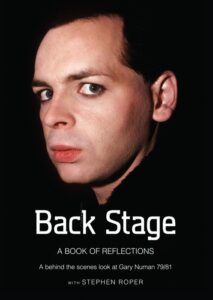 ‘A Book Of Reflections’, long time Numanoid Stephen Roper gives a comprehensive account of the imperial years of Gary Numan from 1979 to 1981 via a series of interviews and memories from band members Chris Payne, RRussell Bell and the late Cedric Sharpley as well as the man himself. OMD’s Andy McCluskey, SIMPLE MINDS’ Jim Kerr and Nash The Slash give the viewpoint of the support acts while there are also additional observations from John Foxx, Richard Jobson and Jerry Casale.
‘A Book Of Reflections’, long time Numanoid Stephen Roper gives a comprehensive account of the imperial years of Gary Numan from 1979 to 1981 via a series of interviews and memories from band members Chris Payne, RRussell Bell and the late Cedric Sharpley as well as the man himself. OMD’s Andy McCluskey, SIMPLE MINDS’ Jim Kerr and Nash The Slash give the viewpoint of the support acts while there are also additional observations from John Foxx, Richard Jobson and Jerry Casale.
‘Back Stage’ was originally published independently with revised 2017 eBook edition available from https://back-stage.dpdcart.com/cart/view#/
https://www.youtube.com/channel/UC-rRuX6k___Y4ZkTHwQg–Q
IN THE PLEASURE GROOVE: LOVE, DEATH & DURAN DURAN John Taylor (2012)
 This autobiography traces the story of how a nervous bespectacled Brummie lad called Nigel became an international sex symbol as John Taylor, bassist of DURAN DURAN; “Now, I had only to wink in a girl’s direction in a hotel lobby, backstage or at a record company party, and have company until the morning” he recalls. As outrageous and debauched as some of these anecdotes of sex and drugs and rock ‘n’ roll are, it would have been very difficult for anyone thrust into this position aged 21 to have acted any differently.
This autobiography traces the story of how a nervous bespectacled Brummie lad called Nigel became an international sex symbol as John Taylor, bassist of DURAN DURAN; “Now, I had only to wink in a girl’s direction in a hotel lobby, backstage or at a record company party, and have company until the morning” he recalls. As outrageous and debauched as some of these anecdotes of sex and drugs and rock ‘n’ roll are, it would have been very difficult for anyone thrust into this position aged 21 to have acted any differently.
‘In The Pleasure Groove’ was originally published by Sphere
MAD WORLD Lori Majeski & Jonathan Bernstein (2014)
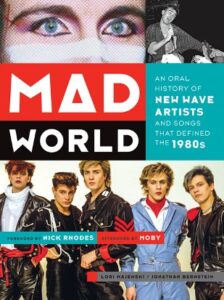 ‘Mad World’ delves into the spirit, the politics and the heartache behind some of the greatest songs in popular culture with an American MTV viewpoint courtesy of enthusiastic Duranie Lori Majewski, balanced by the critique of Glaswegian Jonathan Bernstein. The contrasting dynamic ensures a celebration of the era while simultaneously pulling no punches with Bernstein lobbing hand grenades in the direction of KAJAGOOGOO and THOMPSON TWINS!
‘Mad World’ delves into the spirit, the politics and the heartache behind some of the greatest songs in popular culture with an American MTV viewpoint courtesy of enthusiastic Duranie Lori Majewski, balanced by the critique of Glaswegian Jonathan Bernstein. The contrasting dynamic ensures a celebration of the era while simultaneously pulling no punches with Bernstein lobbing hand grenades in the direction of KAJAGOOGOO and THOMPSON TWINS!
‘Mad World’ was originally published by Abrams Image
https://www.facebook.com/madworldthebook
JAPAN: A FOREIGN PLACE Anthony Reynolds (2015)
 With the co-operation of Richard Barbieri, Steve Jansen and Rob Dean, this book is the first of its kind about the influential enigma that was JAPAN. With detailed accounts by band members and controversial manager Simon Napier-Bell among others, notably absent is David Sylvian who appears via archive interviews while the late Mick Karn is quoted from his own autobiography ‘Japan & Self Existence’.
With the co-operation of Richard Barbieri, Steve Jansen and Rob Dean, this book is the first of its kind about the influential enigma that was JAPAN. With detailed accounts by band members and controversial manager Simon Napier-Bell among others, notably absent is David Sylvian who appears via archive interviews while the late Mick Karn is quoted from his own autobiography ‘Japan & Self Existence’.
‘A Foreign Place’ was originally published by Burning Shed
ELECTRI_CITY: THE DÜSSELDORF SCHOOL OF ELECTRONIC MUSIC Rudi Esch (2016)
 First published in German in 2015, this history gives a fascinating insider’s account of The Düsseldorf School and its cultural significance via interview quotes. Contributors on the home side include Wolfgang Flür, Robert Görl, Gabi Delgado, Hans Lampe, Ralf Dörper and Susanne Freytag, while the Brits they influenced feature Andy McCluskey, Martyn Ware, Dave Ball and Daniel Miller among their number. As Robert Görl says: “Wir wollten lieber mit Maschinen arbeiten… We always preferred working with machines”.
First published in German in 2015, this history gives a fascinating insider’s account of The Düsseldorf School and its cultural significance via interview quotes. Contributors on the home side include Wolfgang Flür, Robert Görl, Gabi Delgado, Hans Lampe, Ralf Dörper and Susanne Freytag, while the Brits they influenced feature Andy McCluskey, Martyn Ware, Dave Ball and Daniel Miller among their number. As Robert Görl says: “Wir wollten lieber mit Maschinen arbeiten… We always preferred working with machines”.
‘Electri_City’ was originally published by Omnibus Press
https://www.facebook.com/Electri.city.Esch
LET’S MAKE LOTS OF MONEY Tom Watkins with Matthew Lindsay (2016)
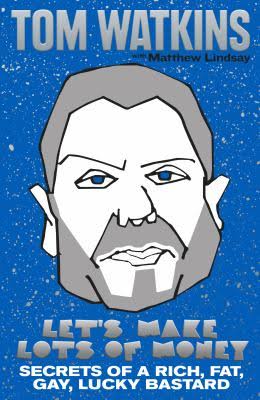 Subtitled “Secrets of a Rich, Fat, Gay, Lucky Bastard”, this is the autobiography of the late Tom Watkins, the Svengali who managed PET SHOP BOYS, BROS and EAST 17. “A big man with a loud voice” said Neil Tennant, but he had a bolshy ability to extract favourable deals including a rumoured 20% commission on gross income while always asking “What would Edna in Huddersfield think?”. Later becoming disillusioned with the pop industry, he describes ‘The X Factor’ as being like “a Nuremberg Rally on pink drugs”
Subtitled “Secrets of a Rich, Fat, Gay, Lucky Bastard”, this is the autobiography of the late Tom Watkins, the Svengali who managed PET SHOP BOYS, BROS and EAST 17. “A big man with a loud voice” said Neil Tennant, but he had a bolshy ability to extract favourable deals including a rumoured 20% commission on gross income while always asking “What would Edna in Huddersfield think?”. Later becoming disillusioned with the pop industry, he describes ‘The X Factor’ as being like “a Nuremberg Rally on pink drugs”
‘Let’s Make Lots Of Money’ was originally published by Virgin Books
https://www.electricityclub.co.uk/tom-watkins-lets-make-lots-of-money/
SUBSTANCE: INSIDE NEW ORDER Peter Hook (2016)
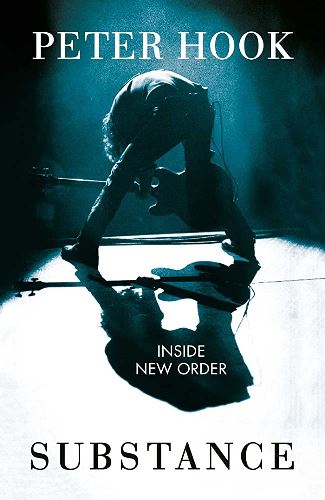 An informative in-depth look inside NEW ORDER, this huge memoir running to over 750 pages by Peter Hook was informative but not unsurprisingly tinged with bitterness and anger. But if you want to know where the band played on 9 April 1985, it’s here! There are track-by-track rundowns of each NEW ORDER album (apart from ’Republic’) and if you’ve always wanted to find out which sequencer was used on ‘True Faith’ or what Hooky’s Top16 bass cab messages are, then look no further!
An informative in-depth look inside NEW ORDER, this huge memoir running to over 750 pages by Peter Hook was informative but not unsurprisingly tinged with bitterness and anger. But if you want to know where the band played on 9 April 1985, it’s here! There are track-by-track rundowns of each NEW ORDER album (apart from ’Republic’) and if you’ve always wanted to find out which sequencer was used on ‘True Faith’ or what Hooky’s Top16 bass cab messages are, then look no further!
‘Substance’ was originally published by Simon & Schuster
https://www.facebook.com/peterhookandthelight/
RECORD PLAY PAUSE + FAST FORWARD: Stephen Morris (2019 + 2020)
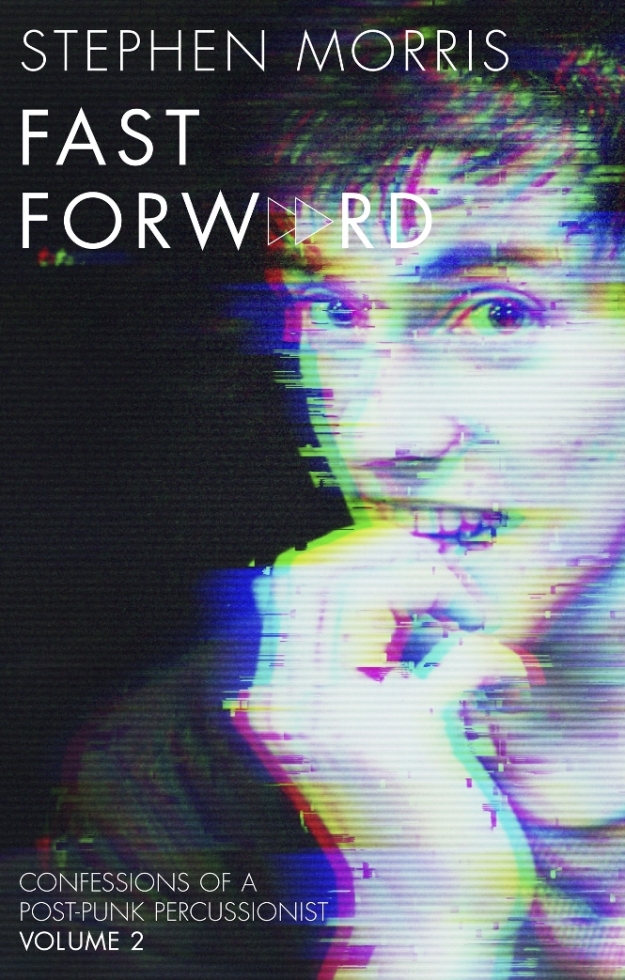 Effectively a lengthy book divided into two parts, Volume I of Stephen Morris’ memoir demonstrated his abilities as an engaging storyteller blessed with an entertaining dry wit, able to convey his growing up in an amusing and relatable manner. In the NEW ORDER dominated Volume II, readers cannot help but laugh out loud when our hero discovers that the 10 mile shooting range of his newly acquired ex-British Army Abbot FV433 self-propelled gun will make Bernard Sumner’s house in Alderley Edge an easy target!
Effectively a lengthy book divided into two parts, Volume I of Stephen Morris’ memoir demonstrated his abilities as an engaging storyteller blessed with an entertaining dry wit, able to convey his growing up in an amusing and relatable manner. In the NEW ORDER dominated Volume II, readers cannot help but laugh out loud when our hero discovers that the 10 mile shooting range of his newly acquired ex-British Army Abbot FV433 self-propelled gun will make Bernard Sumner’s house in Alderley Edge an easy target!
‘Record Play Pause Rewind’ + ‘Fast Forward’ were originally published by Constable
https://twitter.com/stephenpdmorris
ELECTRONIC BOY: MY LIFE IN & OUT OF SOFT CELL Dave Ball (2020)
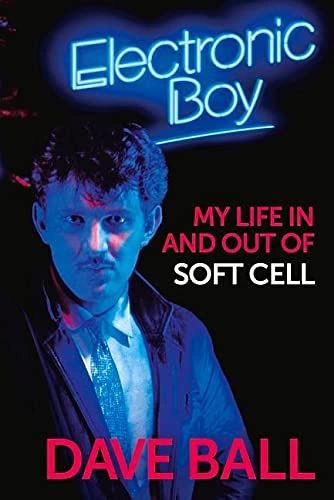 The quiet half of SOFT CELL, Dave Ball attended the same Blackpool school as Chris Lowe from PET SHOP BOYS but they never met. There was obviously something in the sea and the accounts of the Northern Soul scene point towards how that influence, along with the affordability of synthesizers, was to seed a long and successful music career which later included THE GRID. The Electronic Boy is honest about his various demons, but there is also humour and an equipment list appendix plus plenty of technical talk.
The quiet half of SOFT CELL, Dave Ball attended the same Blackpool school as Chris Lowe from PET SHOP BOYS but they never met. There was obviously something in the sea and the accounts of the Northern Soul scene point towards how that influence, along with the affordability of synthesizers, was to seed a long and successful music career which later included THE GRID. The Electronic Boy is honest about his various demons, but there is also humour and an equipment list appendix plus plenty of technical talk.
‘Electronic Boy’ was originally published by Omnibus Press
https://www.facebook.com/daveballofficial
ADVENTURES IN MODERN RECORDING Trevor Horn (2022)
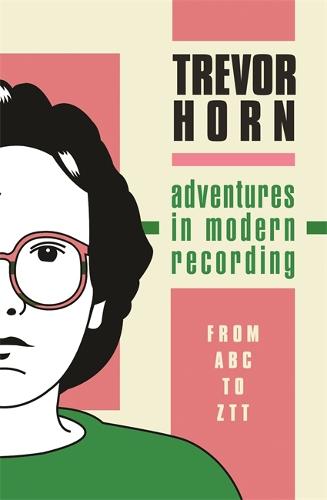 Chaptered around 23 significant pieces of music in the life of Trevor Horn, the producer provides an insight into the making of his greatest moments. Music industry politics are discussed, notably with his ZTT signings FRANKIE GOES HOLLYWOOD, PROPAGANDA and THE ART OF NOISE. Among the revelations are getting bassist Mark Lickley fired from ABC but in all, this is a fun read with lots of name dropping… so imagine sitting in a van with Grace Jones and Jackie Chan that has no seat belts!
Chaptered around 23 significant pieces of music in the life of Trevor Horn, the producer provides an insight into the making of his greatest moments. Music industry politics are discussed, notably with his ZTT signings FRANKIE GOES HOLLYWOOD, PROPAGANDA and THE ART OF NOISE. Among the revelations are getting bassist Mark Lickley fired from ABC but in all, this is a fun read with lots of name dropping… so imagine sitting in a van with Grace Jones and Jackie Chan that has no seat belts!
‘Adventures In Modern Recording’ was originally published by Nine Eight
https://www.facebook.com/trevorhornofficial
ELECTRONICALLY YOURS Vol1 Martyn Ware (2022)
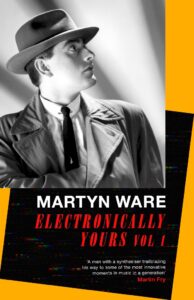 An autobiography that covers up to the end of 1992, a quarter of the book is brilliantly devoted to a track-by-track analysis of every released recording that Martyn Ware was involved in by THE HUMAN LEAGUE, HEAVEN 17 and BEF. Politics looms within ‘Electronically Yours Vol1’ but without this socially conscientious drive , there would be no ‘Penthouse & Pavement’ or ‘The Luxury Gap’. With the recent passing of Tina Turner, Ware’s accounts of working with her now have added poignancy.
An autobiography that covers up to the end of 1992, a quarter of the book is brilliantly devoted to a track-by-track analysis of every released recording that Martyn Ware was involved in by THE HUMAN LEAGUE, HEAVEN 17 and BEF. Politics looms within ‘Electronically Yours Vol1’ but without this socially conscientious drive , there would be no ‘Penthouse & Pavement’ or ‘The Luxury Gap’. With the recent passing of Tina Turner, Ware’s accounts of working with her now have added poignancy.
‘Electronically Yours Vol1’ was originally published by Constable
https://martynwareofficial.co.uk/
LISTENING TO THE MUSIC THE MACHINES MAKE Richard Evans (2022)
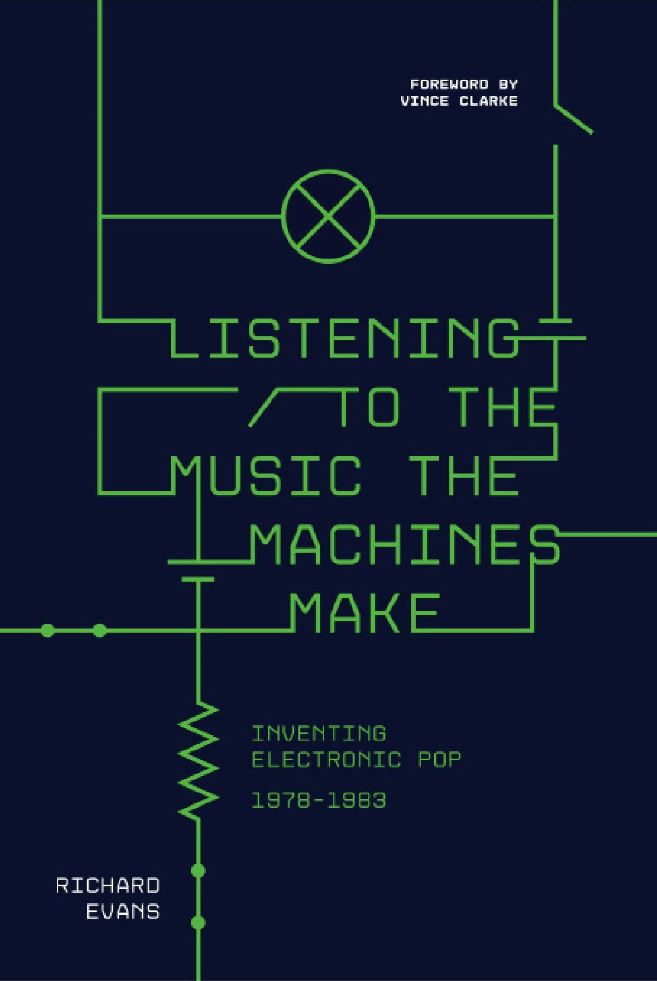 Focussing on “inventing electronic pop”, ‘Listening To The Music The Machines Make’ tells the story of the Synth Britannia generation by referencing archive material rather than via new interviews with the protagonists of the period. The end result is a more accurate picture of how synthesized forms were derided by a hostile music press back in the day, contrasting the rose tinted view projected by some cultural observers and fans today. But over 40 years on, this music has won the fight with many of the acts still performing today.
Focussing on “inventing electronic pop”, ‘Listening To The Music The Machines Make’ tells the story of the Synth Britannia generation by referencing archive material rather than via new interviews with the protagonists of the period. The end result is a more accurate picture of how synthesized forms were derided by a hostile music press back in the day, contrasting the rose tinted view projected by some cultural observers and fans today. But over 40 years on, this music has won the fight with many of the acts still performing today.
‘Listening To The Music The Machines Make’ was originally published by Omnibus Press
https://inventingelectronicpop.com/
THE SOUND OF THE MACHINE: MY LIFE IN KRAFTWERK & BEYOND Karl Bartos (2022)
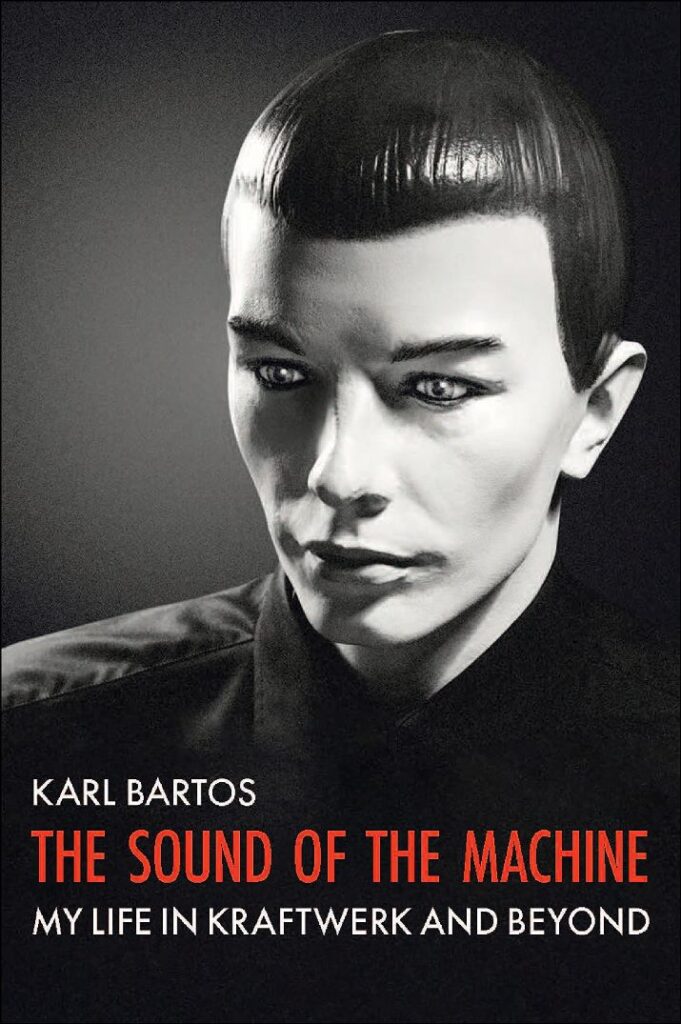 A detailed autobiography of Karl Bartos about his time in KRAFTWERK and more, his optimistic disposition is a key aspect of this story. But although rising to the ranks of co-writer for ‘The Man Machine’ album, some members were more equal than others as Ralf Hütter bagged himself 50% of the publishing for the lyrics of ‘Spacelab’ and ‘Metropolis’ despite those tracks containing one word, thus reducing Bartos’ musical share! Bitterness is largely absent from this book, but it is no “sex, synths und schlagzeug” romp either.
A detailed autobiography of Karl Bartos about his time in KRAFTWERK and more, his optimistic disposition is a key aspect of this story. But although rising to the ranks of co-writer for ‘The Man Machine’ album, some members were more equal than others as Ralf Hütter bagged himself 50% of the publishing for the lyrics of ‘Spacelab’ and ‘Metropolis’ despite those tracks containing one word, thus reducing Bartos’ musical share! Bitterness is largely absent from this book, but it is no “sex, synths und schlagzeug” romp either.
‘The Sound Of The Machine’ was originally published by Omnibus Press
THEMES FOR GREAT CITIES: A NEW HISTORY OF SIMPLE MINDS Graeme Thompson (2022)
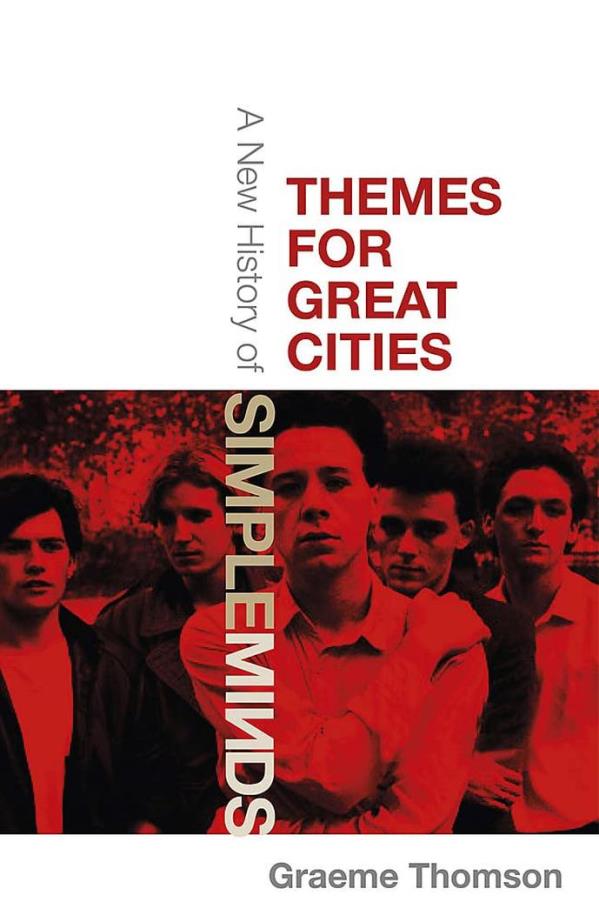 Featuring new interviews with original members Jim Kerr, Charlie Burchill, Mick MacNeil and Derek Forbes, this biography focuses on the SIMPLE MINDS era of 1979-1985 when they were at their imperial and imaginative best. So where did it all go wrong? The book reveals what ELECTRICITYCLUB.CO.UK has thought since buying the album in 1984 and that Jim Kerr himself now confirms… the second half of ‘Sparkle In The Rain’ is not particularly good! So who agrees? “LET ME SEE YOUR HANDS!”
Featuring new interviews with original members Jim Kerr, Charlie Burchill, Mick MacNeil and Derek Forbes, this biography focuses on the SIMPLE MINDS era of 1979-1985 when they were at their imperial and imaginative best. So where did it all go wrong? The book reveals what ELECTRICITYCLUB.CO.UK has thought since buying the album in 1984 and that Jim Kerr himself now confirms… the second half of ‘Sparkle In The Rain’ is not particularly good! So who agrees? “LET ME SEE YOUR HANDS!”
‘Themes For Great Cities’ was originally published by Constable
CONFORM TO DEFORM: THE WEIRD & WONDERFUL WORLD OF SOME BIZZARE Wesley Doyle (2023)
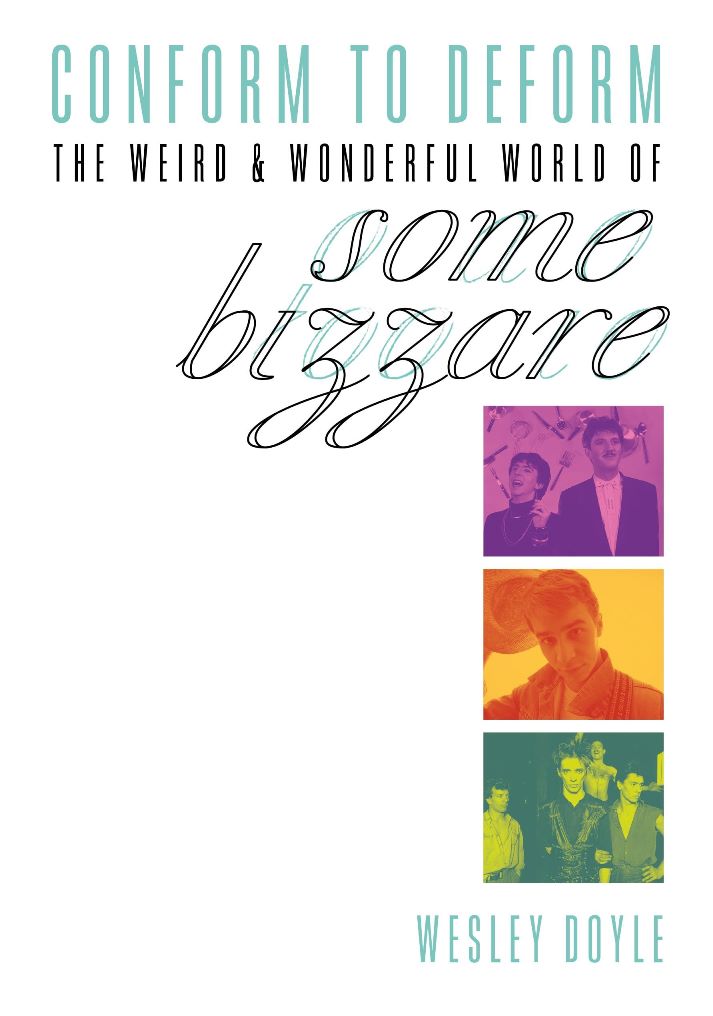 The story of Some Bizzare was always going to be a grand undertaking but Wesley Doyle managed to assemble Marc Almond, Dave Ball, Matt Johnson, Daniel Miller, Steve Hovington, Neil Arthur, JG Thirlwell, Stephen Mallinder, Anni Hogan, Stevo Pearce and his long suffering personal assistant Jane Rolink to document the rise and fall of the label that got into bed with the majors. Opting for a chronological quotes narrative, the book captures the personality of the characters involved and the tensions between them.
The story of Some Bizzare was always going to be a grand undertaking but Wesley Doyle managed to assemble Marc Almond, Dave Ball, Matt Johnson, Daniel Miller, Steve Hovington, Neil Arthur, JG Thirlwell, Stephen Mallinder, Anni Hogan, Stevo Pearce and his long suffering personal assistant Jane Rolink to document the rise and fall of the label that got into bed with the majors. Opting for a chronological quotes narrative, the book captures the personality of the characters involved and the tensions between them.
‘Conform To Deform’ was originally published by Jawbone Press
https://twitter.com/WesleyDoyleUK
Text by Chi Ming Lai
13th June 2023

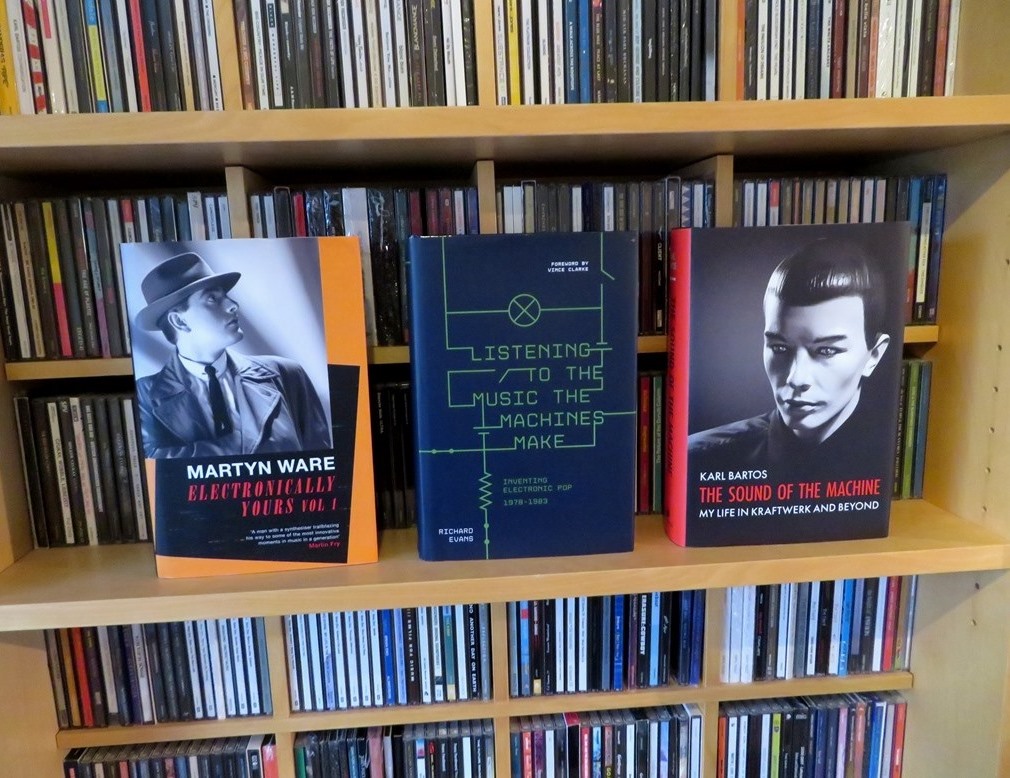
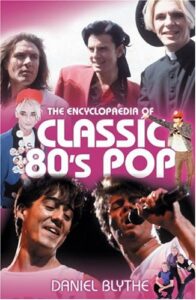
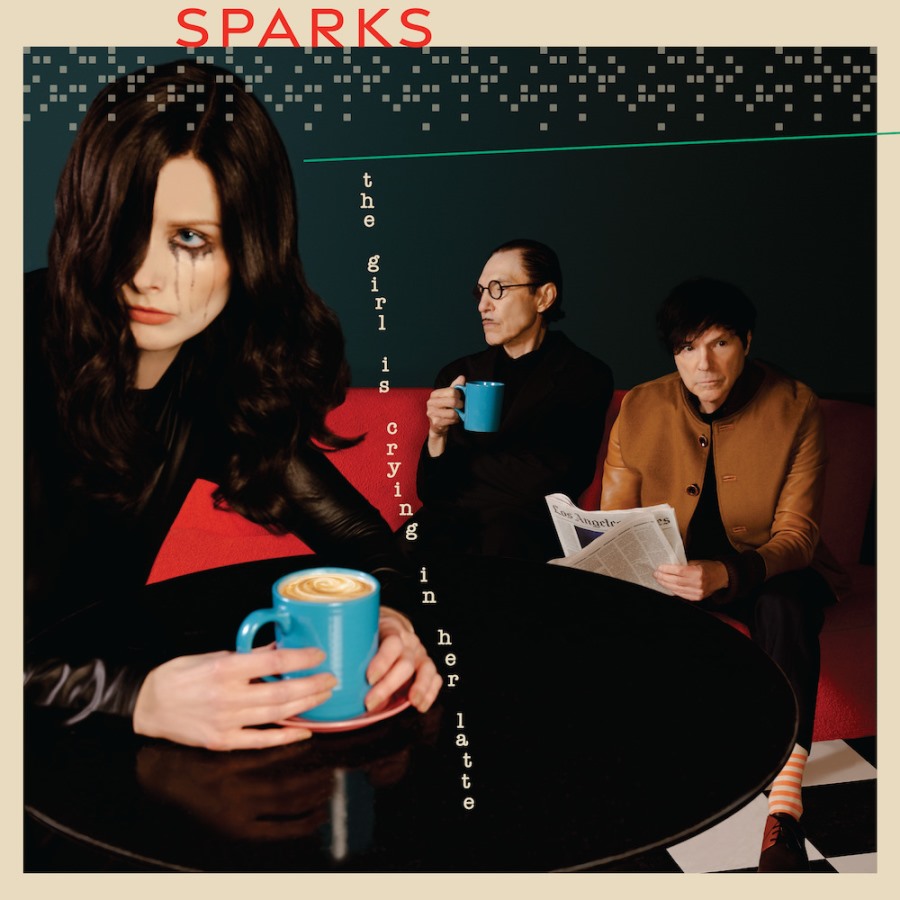

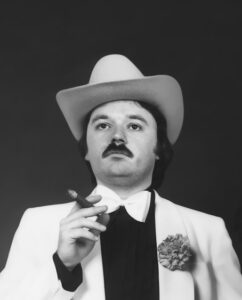
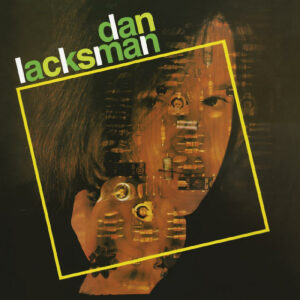
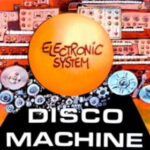
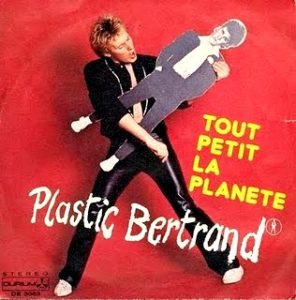
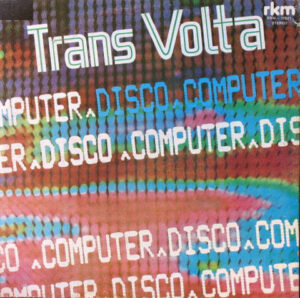
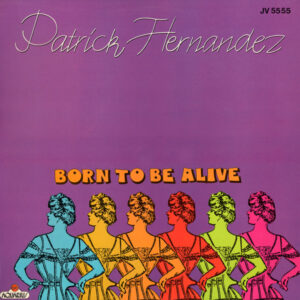
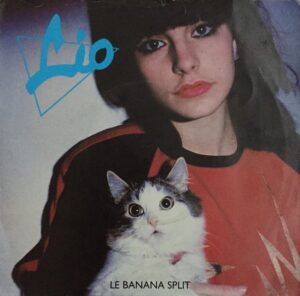
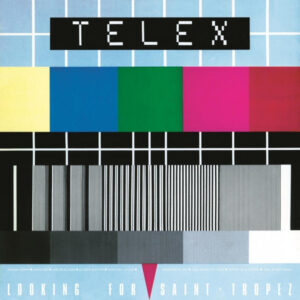
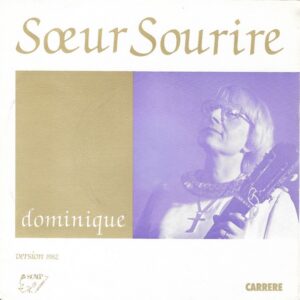
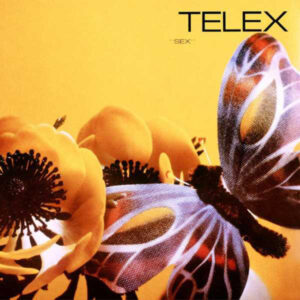

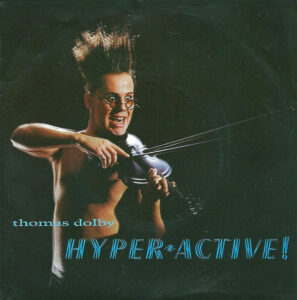
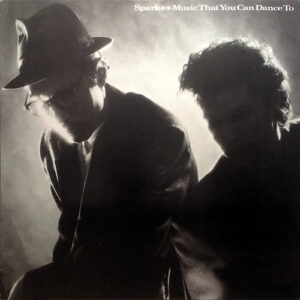
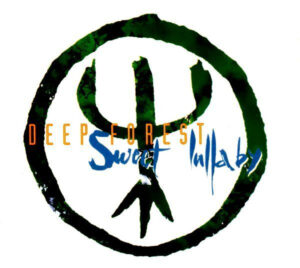
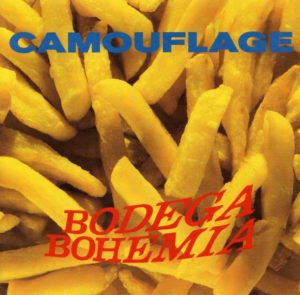
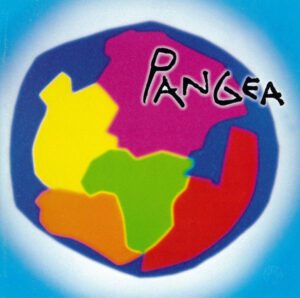
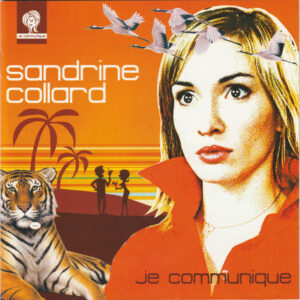
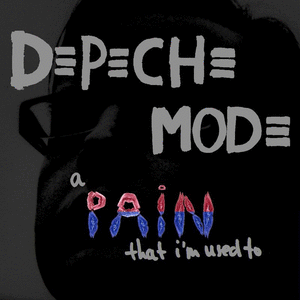
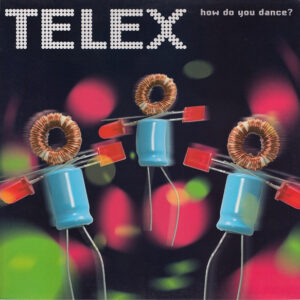
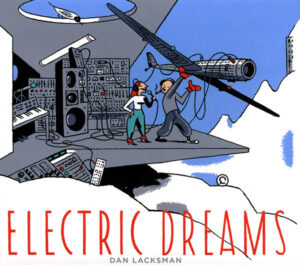
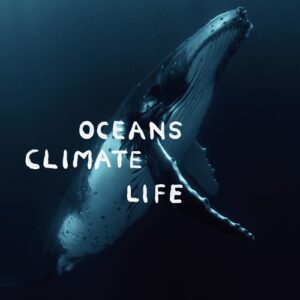

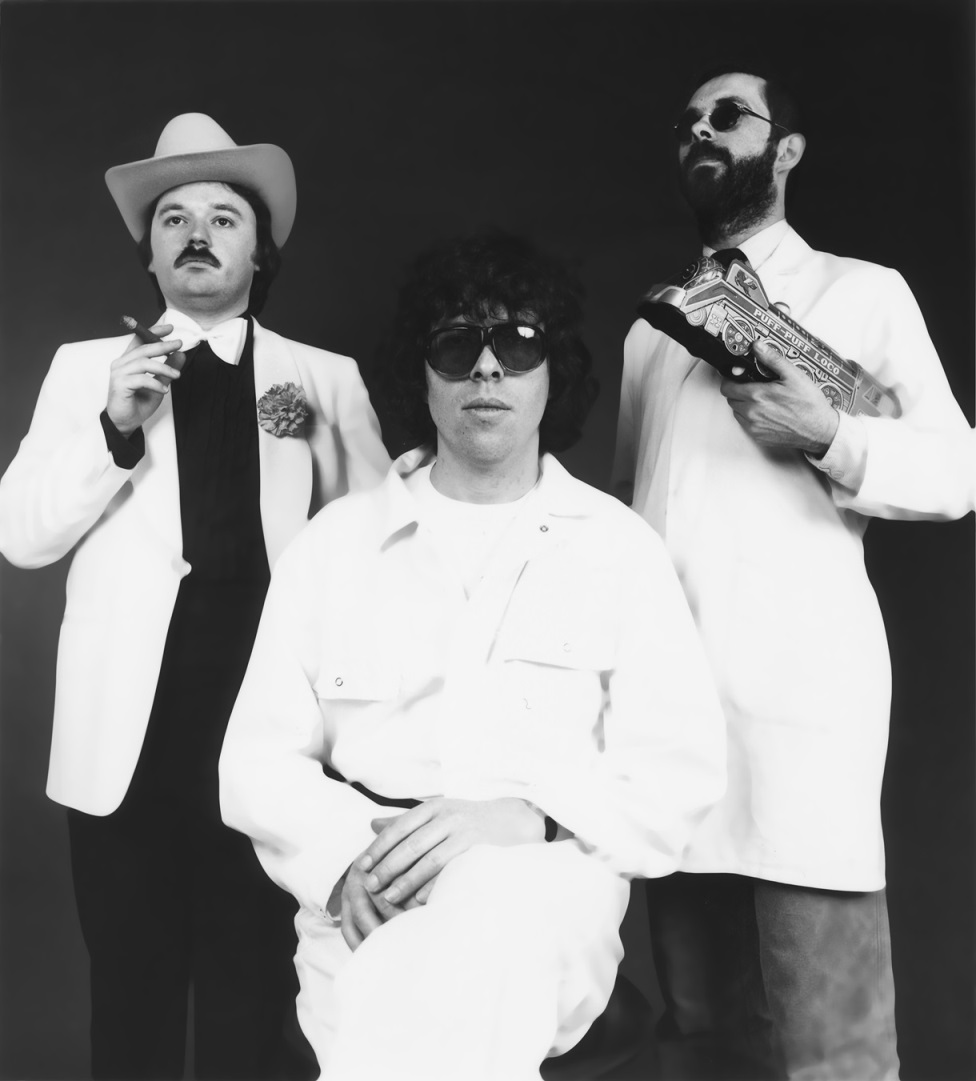
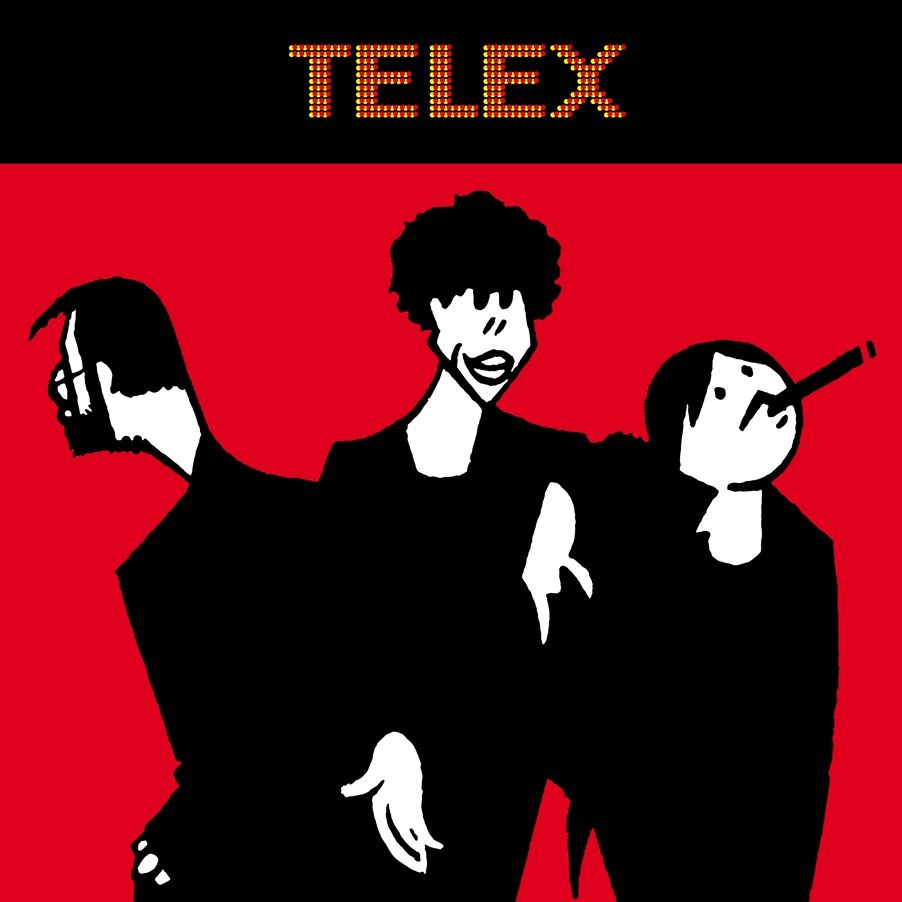


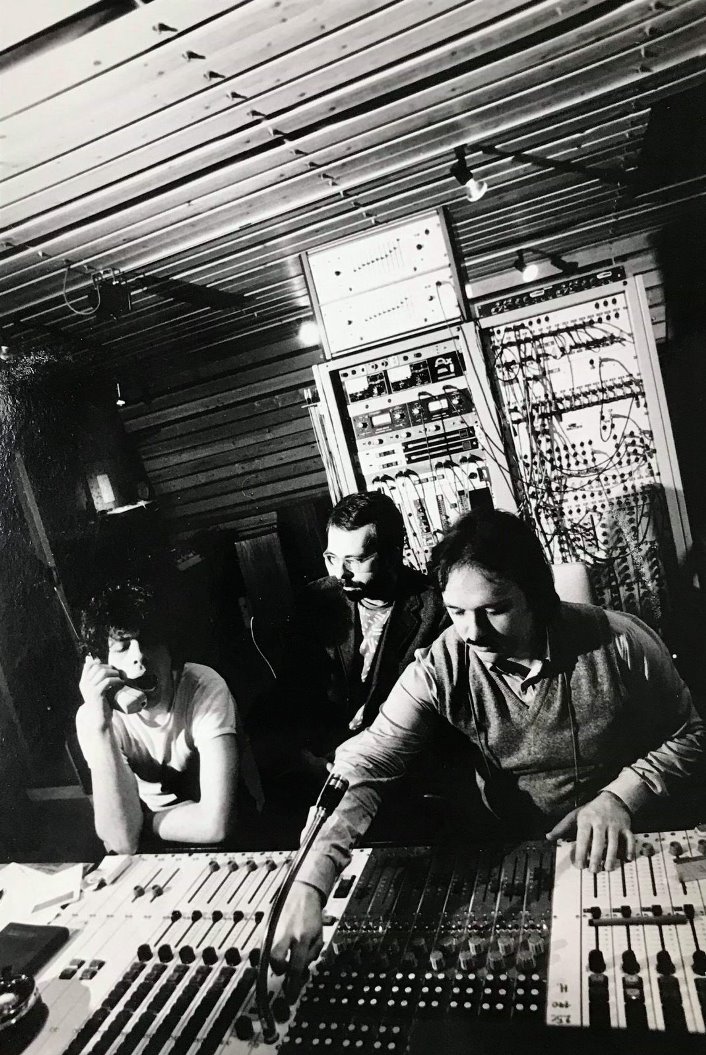
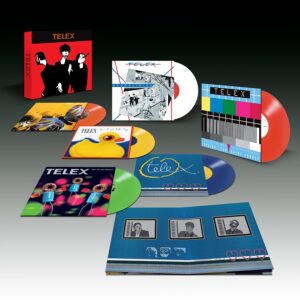
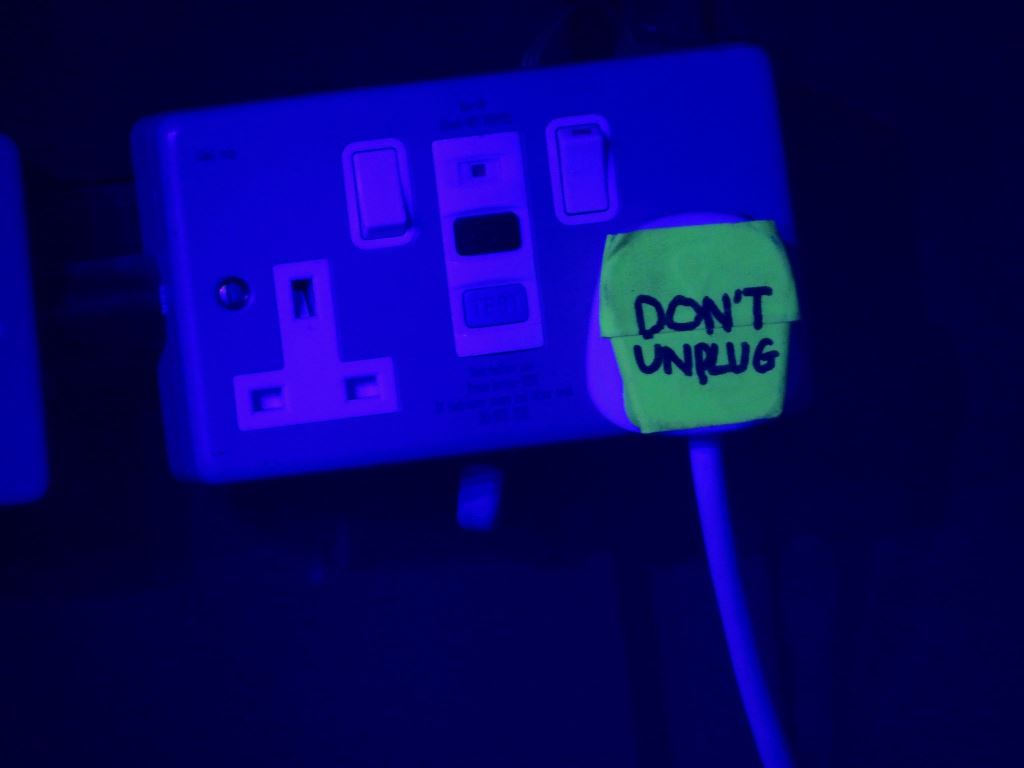

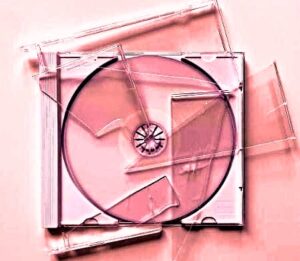
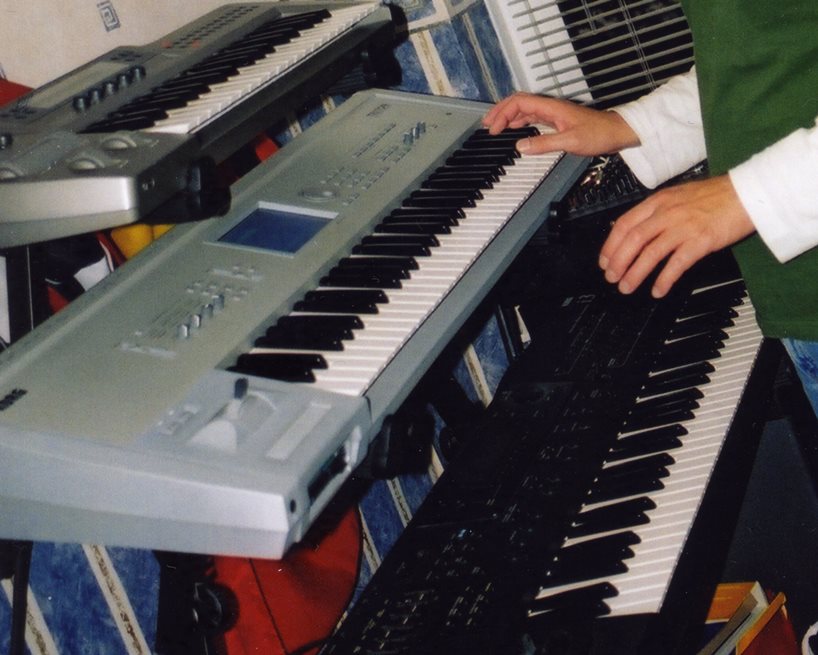
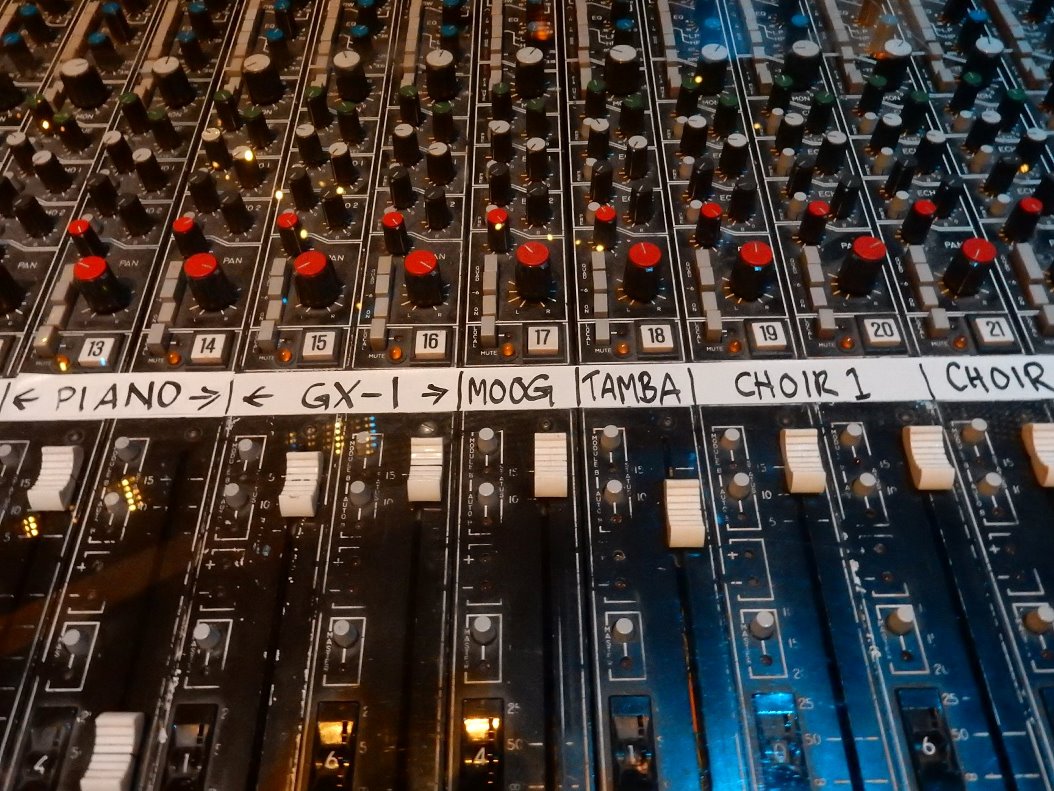
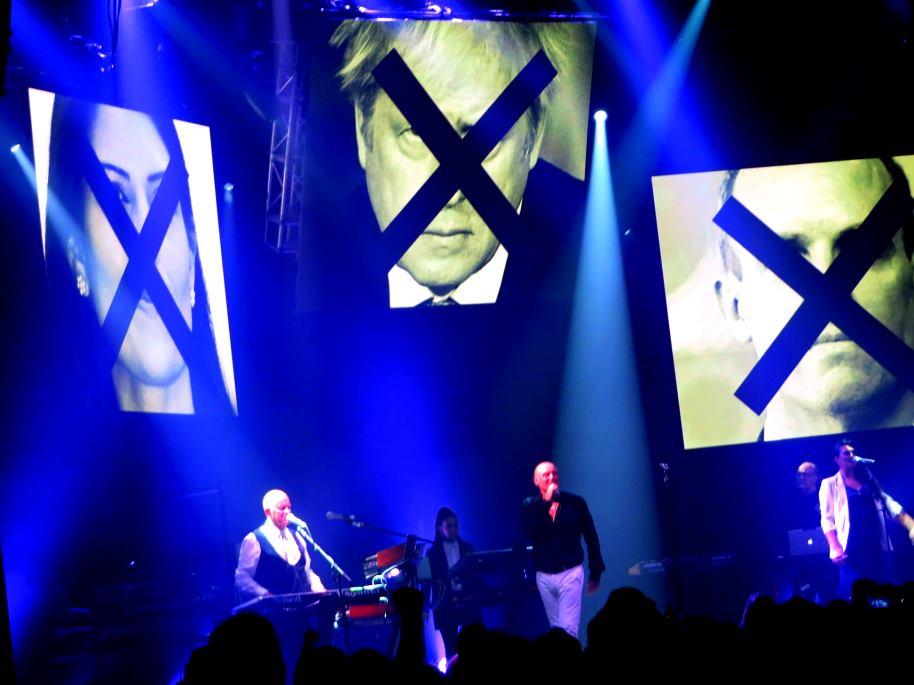
Follow Us!